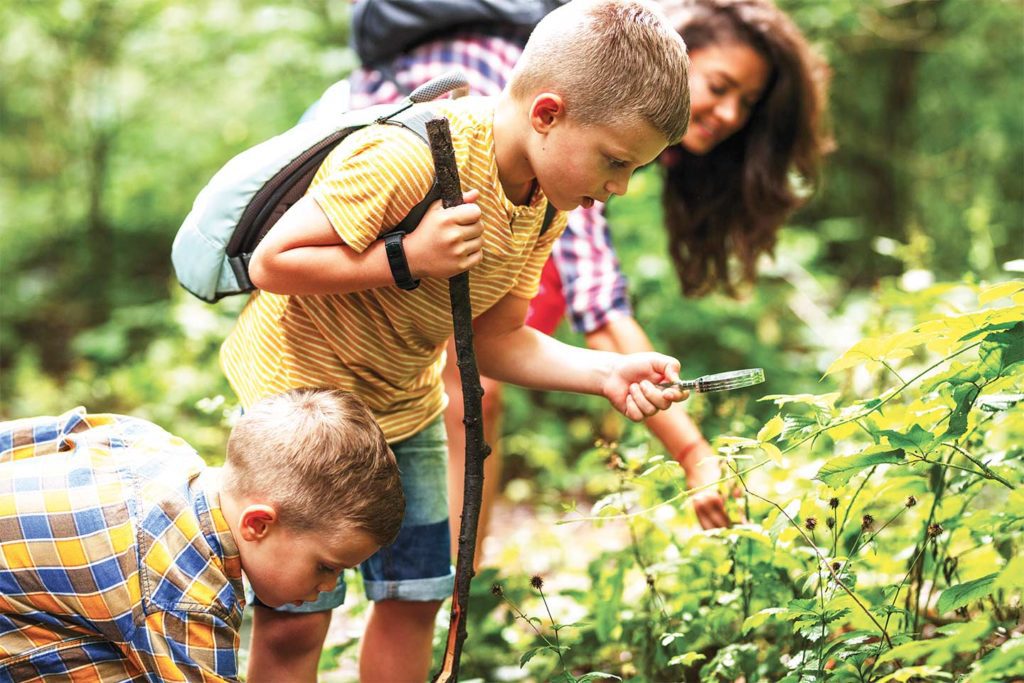A rite of passage, summer camp is a time for kids to build confidence, make memories, and create lifelong friendships. In order to ensure your child makes the most of their experience, there are steps you as a parent can take to prepare them for the road ahead. From choosing a camp best suited to their needs and interests to packing the perfect suitcase and preparing for homesickness, this guide will help you make your child’s experience memorable and meaningful.
How to Choose a Summer Camp
When it comes time to select a summer camp for your child, the first decision you should make is whether it will be a day camp or a sleepaway camp. Both options provide extensive opportunities for learning, engagement, and fun – it just comes down to what better suits their personality.
Sleepaway camps usually range anywhere from one to eight weeks and include all sorts of supervised activities. There will be opportunities to explore new hobbies, meet other kids from across the region, and grow as individuals. Day camps tend to feature similar activities to sleepaway camp, but they may be a better option for children who either aren’t interested or aren’t quite ready for a sleepaway camp.

Often, day camps are also available for younger children that aren’t yet old enough to attend sleepaway camp.
Once you’ve chosen whether a sleepaway or day camp seems more appropriate for your child, you’ll want to determine whether a specialty or traditional camp makes more sense. Specialty camps, as the name suggests, focus on a particular specialty, or theme. For instance, one child may thrive at a sports camp, while another enjoys art camp. Traditional camps, on the other hand, provide more of a generalized experience, often including a mix of sports, outdoors, and arts and crafts.
Preparing Your Child for Camp
Now that you’ve selected the perfect camp, there are a few steps you can take to ensure your child’s experience is a positive one. First and foremost, it’s important to discuss the upcoming experience with your child and set expectations. Like anything in life, there will be ups and downs. Bouts of boredom or loneliness are only natural, but they will be fleeting. Remind them that in addition to being fun, the camp experience is designed to help children step out of their comfort zones.
If your child is attending sleepaway camp, you’ll want to prepare for homesickness. Let your child know that it’s a perfectly normal emotion – and they can handle it. Do not offer to pick them up early or take a phone call unless absolutely necessary; there are trained staff members there to handle these situations. On the opposite end, you should prepare yourself for “kidsickness.” Of course, you will miss your child while they’re gone, but remember they’re having a blast! You don’t want any potential nerves to rub off on them before they go.
Before camp starts, it’s also important to schedule your child a physical early. Time slots can fill up quickly in the summer, and at many camps, a signed medical release is a requirement. Once you’ve made the appointment, find out if your child’s camp prefers an electronic or physical copy so that you can request the appropriate version while there.
Last but certainly not least, follow the packing list! Camps will always provide parents with a list of what is – and what is not – allowed at camp. During day camp, you may need to provide lunch and/or a snack. Certain shoes or equipment may be required for the day’s activities. For sleepaway camp, the list will be lengthier and will include everything from soap to costumes for theme nights. If you don’t follow the packing list, your child may feel like the odd man out or be forced to sit out of activities because they don’t have what they need.
While at Camp
It’s time! Camp is officially here, and your child is rearing to go. A few steps you can take during this time will be beneficial for both you and your child. For one, encourage your child to keep a journal throughout camp. This will help them stay attuned to their feelings and will also help them see how much they’ve done and grown over the course of the camp. As a bonus, it will help them remember all of the little details to share with you when they reminisce on the experience!
For sleepaway camp, you might consider sending a care package, if the camp allows. These are a great way to remind your child you are thinking about them, and it helps connect them to home. It’s also a fun opportunity for you to feel like a part of the camp experience!


That being said, check the rules first. Certain things are almost always not allowed, like food, messy toys (think silly string or confetti), and electronics. And sometimes there are strict size requirements for the package. Your camp should provide you with all of the details.
Lastly, take some time for yourself. As a hardworking parent, there is often little downtime. Enjoy it and relax while you can.
Summer camp is a fantastic opportunity for children to learn more about themselves and explore new opportunities and adventures. By following these steps, you can help make the experience memorable and meaningful. You’ll be amazed to see how much your child can grow and mature in such a short amount of time. HS

